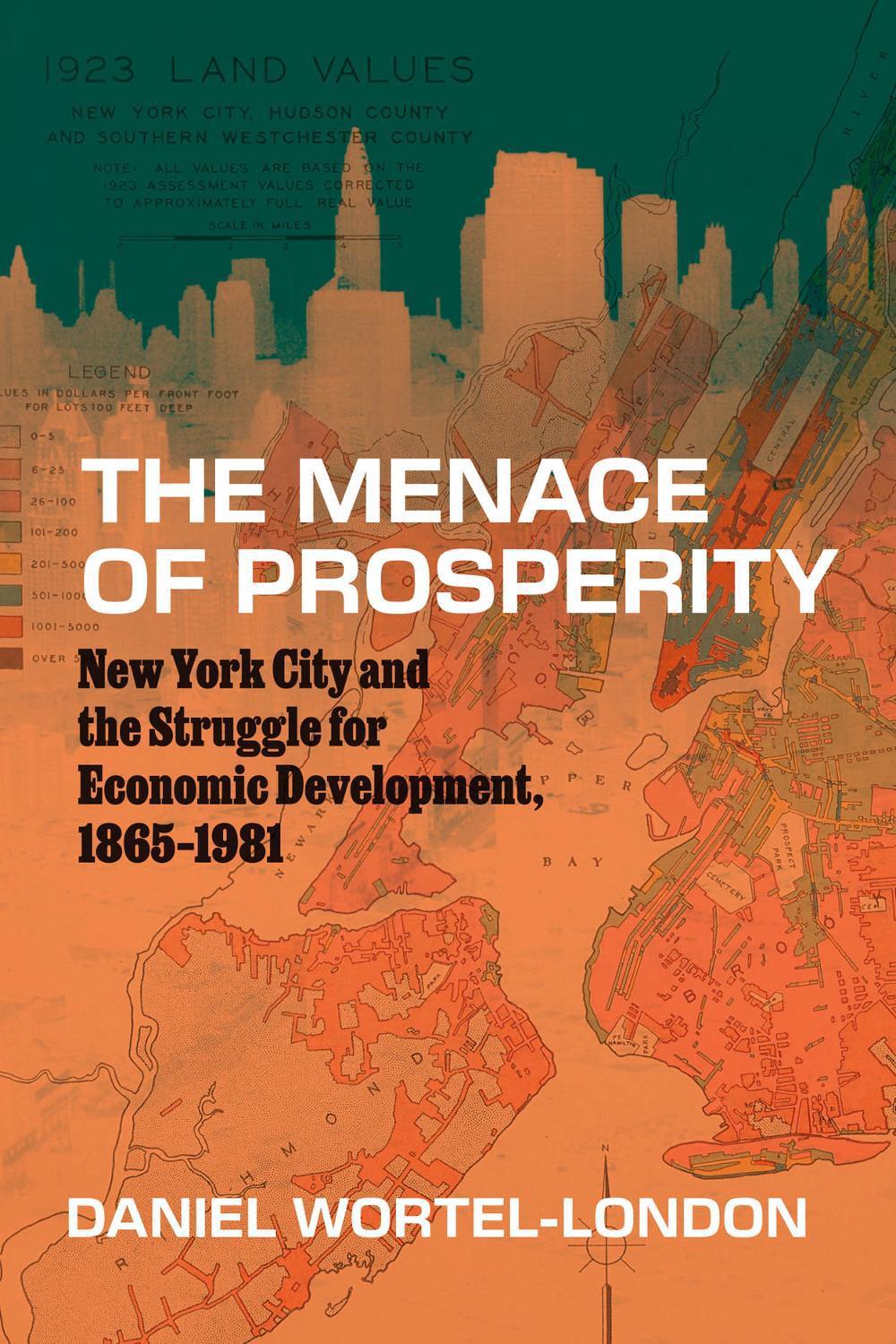
The Menace of Prosperity
new york city and the struggle for economic development, 1865–1981
$171.60
- Hardcover
336 pages
- Release Date
18 November 2025
Summary
The Fiscal Imagination: Reimagining Urban Economies Beyond the Wealthy
Upends entrenched thinking about cities, demonstrating how urban economies are defined—or constrained—by the fiscal imagination of policymakers, activists, and residents.
Many local policymakers make decisions based on a deep-seated belief: what’s good for the rich is good for cities. Convinced that local finances depend on attracting wealthy firms and residents, municipal governments lav…
Book Details
| ISBN-13: | 9780226841090 |
|---|---|
| ISBN-10: | 022684109X |
| Series: | Historical Studies of Urban America |
| Author: | Daniel Wortel-London |
| Publisher: | The University of Chicago Press |
| Imprint: | University of Chicago Press |
| Format: | Hardcover |
| Number of Pages: | 336 |
| Release Date: | 18 November 2025 |
| Weight: | 454g |
| Dimensions: | 229mm x 152mm |
You Can Find This Book In
What They're Saying
Critics Review
“Both richly detailed and visionary, The Menace of Prosperity is an ambitious and important new history of New York’s recurring struggles over growth and inequality.” * Forbes *“The wealth of America’s cities are immense; the most important lesson of Wortel-London’s magisterial history is that, if tens of thousands of city residents over the years have seen, in their time and in their particular context, a means to tie that wealth less to elite use and more to abundant employment, why shouldn’t we join those who are continuing to seek to realize, in today’s context, this vision once more?” * Front Porch Republic *“Wortel-London offers a timely primer on the history of urban economic development, demonstrating how time and again the desire to grow New York City’s economy did more to widen inequality than to solve fiscal woes. The Menace of Prosperity challenges the orthodoxy that all growth is good and powerfully asserts that there were—and are—alternative approaches to the elite-driven urban development that has dominated US cities since the nineteenth century. A more just economic future depends on a reckoning with past failures, and Wortel-London has provided a carefully researched and compellingly written account that those who work in urban policy today would do well to consult.” – Claire Dunning, author of “Nonprofit Neighborhoods: An Urban History of Inequality and the American State”“During the nineteenth and twentieth centuries, New York City became the nation’s and then the world’s capital of capital. But to those who lived there, New York City remained just that—a city of working families who rode subways and buses, sent their kids to public schools, and struggled to pay the rent. As Wortel-London brilliantly shows in this compelling book, the work and welfare of New Yorkers and the public servants they elected was shaped and often dictated by the ideologies and interests of capital. From the C-suites of global financial institutions, the destiny of New York City was decided. Wortel-London’s timely book reminds us that the goods of ‘economic growth’ aren’t distributed evenly or fairly, and that by chasing it we cheat ourselves out of a better and more livable future for all.” – Brian Phillips Murphy, author of “Building the Empire State: Political Economy in the Early Republic”“The Menace of Prosperity is a shockingly provocative history of New York’s political economy, which targets the conventional wisdom of generations of politicians and scholars. No one escapes Wortel-London’s critique. He roasts conservatives who try to subsidize the rich, liberals who try to sustain the system with subsidies to the poor, and neoliberals, who try to do both. Whether or not you agree with Wortel-London, The Menace of Prosperity is a must-read for any scholar or policymaker invested in the city’s future.” – Jonathan Soffer, author of “Ed Koch and the Rebuilding of New York City”
About The Author
Daniel Wortel-London
Daniel Wortel-London is visiting assistant professor of history at Bard College.
Returns
This item is eligible for free returns within 30 days of delivery. See our returns policy for further details.




